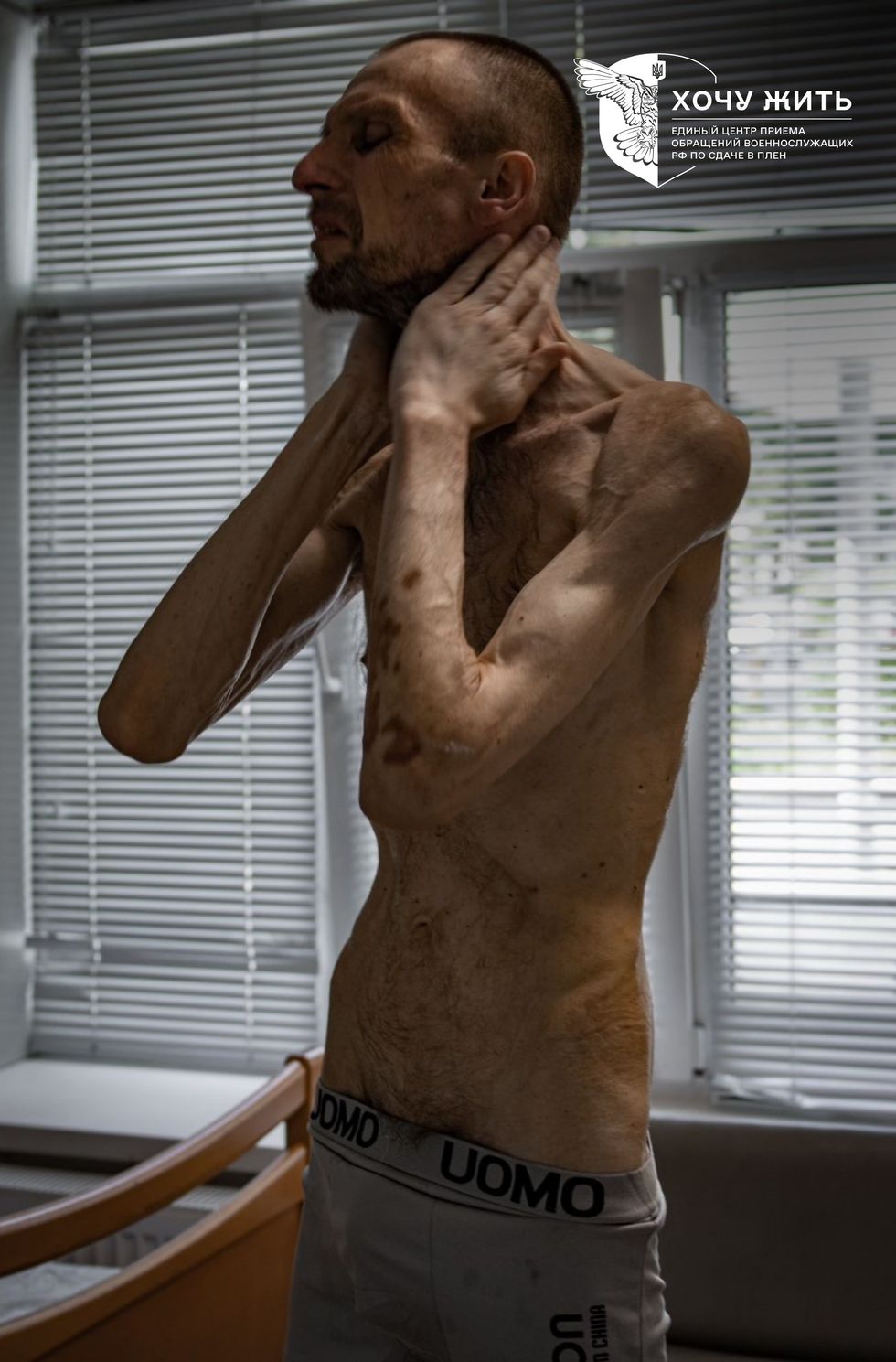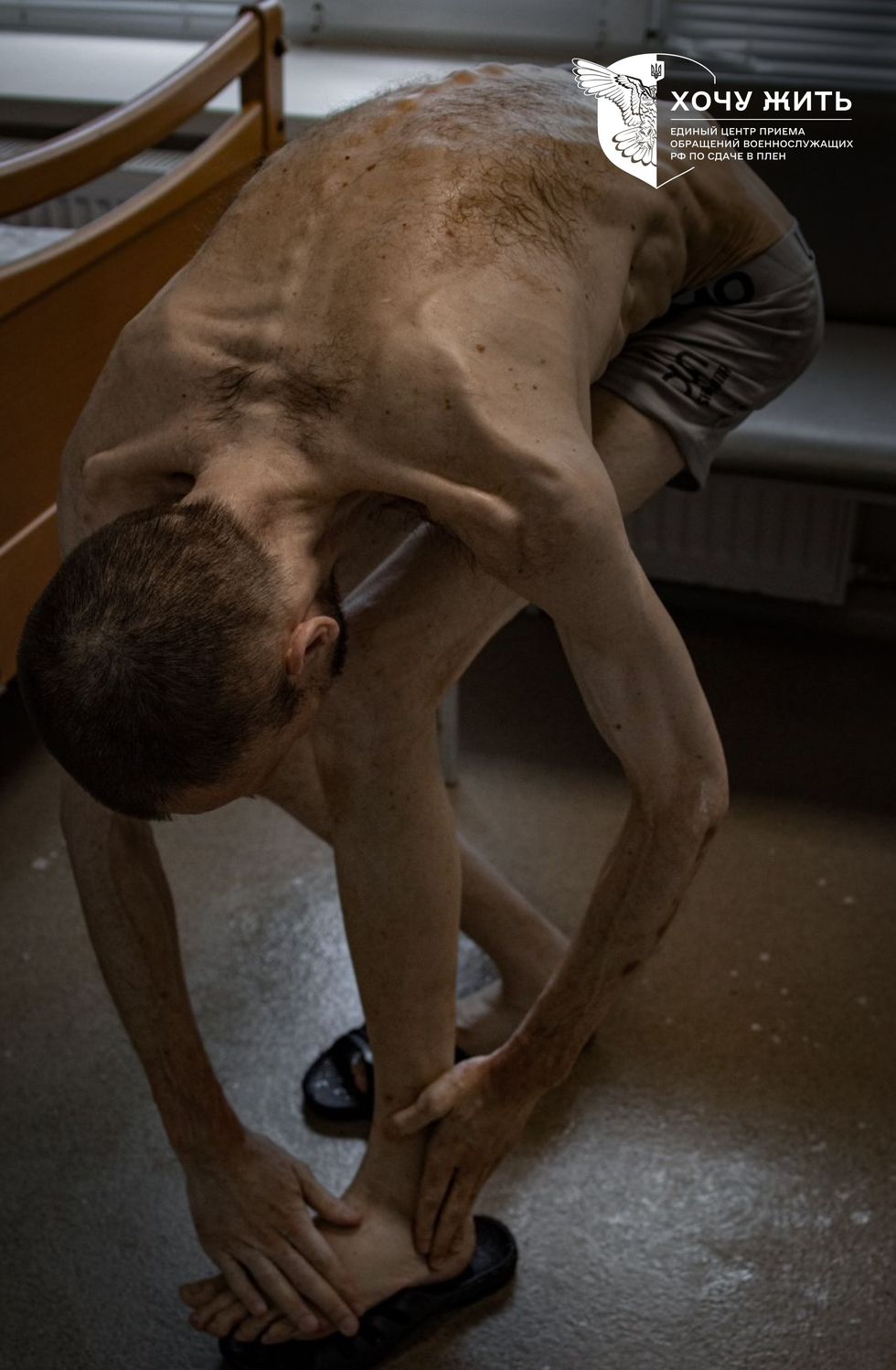Horror photos show the treatment of a Ukrainian Chernobyl guard detained in Russia captivity for more than two years
I Want to Live
Pictures show the 31-year-old frail and with bones protruding from his skin
Don't Miss
Most Read
Trending on GB News
Horror photos show the treatment of a Ukrainian Chernobyl guard detained in Russia for more than two years.
Roman Vasiliovich Gorilyk was released in a prisoner swap last month after living in dire conditions.
Pictures show the 31-year-old frail and with bones protruding from his skin.
Gorilyk was a senior controller at the Chernobyl power plant and had no involvement in any fighting but was "taken hostage" by the Russians in March 2022, according to army hotline "I Want to Live".

Roman Vasiliovich Gorilyk was released in a prisoner swap last month after living in dire conditions
I Want to Live
Many claim the prison conditions are in breach of the Geneva Conventions.
According to the army hotline, neither Gorilyk nor the other 74 prisoners were visited by observers from the International Committee of the Red Cross (ICRC) in violation of international law.
"The condition of Roman and other Ukrainian prisoners of war is horrifying and brings to mind the darkest pages of human history, Nazi concentration death camps," the project wrote on social media.
Russian forces swept through the Chernobyl Nuclear Power Plant and took 169 National Guardsmen.
Gorilyk and his fellow guardsmen were moved out of Ukraine through Belarus, according to "I Want to Live".
LATEST DEVELOPMENTS:
The project - which was launched with support from the Ukrainian Ministry of Defence and Main Intelligence Directorate to guarantee protection to surrendering Russian personnel - said as many as 89 hostages remain in Russian detention.
The group wrote: "Not allowing observers to see prisoners of war in violation of the provisions of the Geneva Conventions is a deliberate and targeted policy of the Russian authorities.
"This is done specifically so that the International Red Cross cannot record how the Russian side treats prisoners of war.
"To hide from the whole world Russia's inhumane treatment of Ukrainians, literally the policy of genocide of the Ukrainian people."
Under the Geneva Conventions, the ICRC can offer humanitarian protection and assistance during armed conflicts - and countries must allow the ICRC to visit prisoners of war.

Russian forces swept through the Chenobyl Nuclear Power Plant and took 169 National Guardsmen
I Want to Live
Both Russia and Ukraine have been accused of maltreatment of prisoners by the Office of the High Commissioner for Human Rights (OHCHR).
An ICRC spokesperson said: "To date the ICRC does not have full access to all PoWs. We know many PoWs and civilian internees are still waiting to receive visits and we continue our efforts to access all of them.
"We also know that every day is full of uncertainty for their families who are looking for reassurance.
"Under the Third and Fourth Geneva Conventions, the ICRC must be allowed to see all PoWs and civilian internees, have access to all places where they are held and be allowed to repeat visits as often as needed.
"All states are legally obligated to make this happen as they have all signed the Geneva Conventions. Any abuse of PoWs is not only prohibited under the Third Geneva Convention but also profoundly unacceptable."








